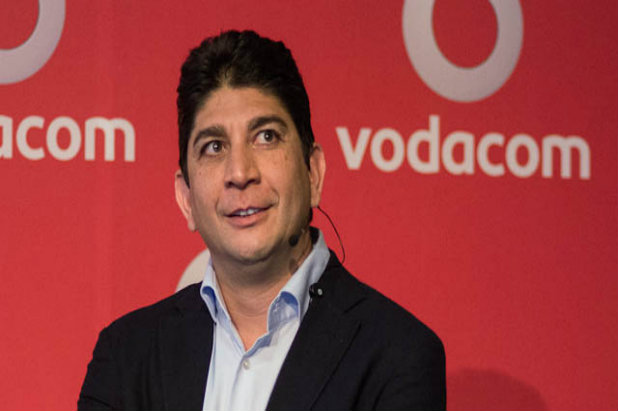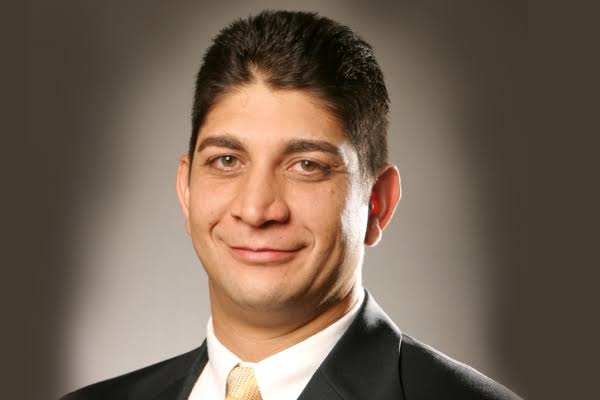How The Fintech Arm Of South African Telco Vodacom Made $130m Revenue In Four Months
Vodacom, South Africa’s top telecommunications company, unveiled the VodaPay super app for smartphone users in October 2021, but it appears to be on a rollercoaster ride. According to the company’s key financial KPIs for the quarter ended December 31, 2021, fintech services revenue surpassed R2 billion for the first time in a quarter, marking a 12.5 percent growth rate.

“Our M-Pesa platform, including Safaricom, continues to scale at an impressive rate, with transaction values up 16.1% to exceed R430 billion per month,” says Shameel Joosub, group CEO.
“We see VodaPay as a precursor to M-Pesa’s evolution and further strengthening our fintech position across our footprint,” Joosub says.
Here Is What You Need To Know
- According to Joosub, the company’s VodaPay super app, which launched in October last year, surpassed expectations by collecting 1.4 million downloads and one million registered users in its first three months in South Africa.
- The expansion of Vodacom financial services comes as the telecom sets its eyes on being one of Africa’s leading fintech firms in the next three years, with a target of over 70 million clients.
- Vodacom is transitioning from a telecommunications firm to a technology company, while also extending its ecosystem of products, allowing it to diversify its revenue streams.
- Its revenue increased by 6.4 percent in the third quarter ended in December, owing to rising demand for connectivity and the expansion of new services such as financial and digital services, internet of things, and fixed.
“Our service revenue growth of 4.4% on a normalised basis was in line with the group’s medium-term target and supported by a resilient performance in SA on the back of sustained investment in technology and our network to further enhance customer experience,” Joosub says.
- Service revenue for Vodacom’s foreign operations increased 6.7 percent to R5.9 billion, or 3.5 percent on a normalized basis, thanks to the company’s sustained focus on financial inclusion and increased capital spending, according to Joosub.
Read also Vodacom Seeks to Unseat Rival MTN’s Market Position With Two Major Acquisitions
“The reported growth was underpinned by a 12.9% increase in M-Pesa revenue and a 21.2% rise in data revenue. Tanzania’s financial performance and progress in driving financial inclusion was impacted by government levies imposed on mobile money and airtime recharges. A key focus for our international portfolio is digital inclusion, which will be supported by our growing 21.5 million data customer base and driving higher smartphone adoption, with international customers on smartphones at 12 million,” Joosub says.
How VodaPay Works
Users can safely upload and save money in a digital wallet within the VodaPay SuperApp, which is accessible on the Android and Apple app stores. Users of the VodaPay app can then use it to make purchases, pay bills, and send money instantly and for free. The registration process is quick, and it eliminates the paperwork and delays that come with opening a regular bank account in Africa.
Users can also add their existing cards from any South African bank to the app and use them to make payments.
VodaPay is designed to help customers manage numerous aspects of their lives by allowing them to purchase at their favorite stores, order food, send money, and pay bills all from within the app.
“We’ve also worked with some of South Africa’s biggest and most renowned brands to guarantee that consumers using the VodaPay super-app are spoiled for choice when it comes to making purchasing selections,” Shameel Joosub said last year.
Customers on any mobile network can use VodaPay, according to Vodacom. Vodacom customers will not be charged for any data consumed when browsing or transacting with the app because it is zero-rated. In the near future, VodaPay hopes to extend this offer to consumers on additional mobile networks.
The launch of VodaPay is aimed to broaden the reach of digital financial services in Africa, building on the success of M-PESA, a mobile money platform launched by Vodafone and Safaricom in 2007 that has grown to over 50 million active users and contributed significantly to Africa’s financial inclusion.
M-PESA, which operates in Kenya, Tanzania, Mozambique, the Democratic Republic of Congo, Lesotho, Ghana, and Egypt, saw the number of transactions on its network increase to 4.5 billion in the first quarter of 2021, totaling roughly €63 billion.
Vodacom fintech revenue Vodacom fintech revenue Vodacom fintech revenue
Charles Rapulu Udoh

Charles Rapulu Udoh is a Lagos-based lawyer who has advised startups across Africa on issues such as startup funding (Venture Capital, Debt financing, private equity, angel investing etc), taxation, strategies, etc. He also has special focus on the protection of business or brands’ intellectual property rights ( such as trademark, patent or design) across Africa and other foreign jurisdictions.
He is well versed on issues of ESG (sustainability), media and entertainment law, corporate finance and governance.
He is also an award-winning writer









